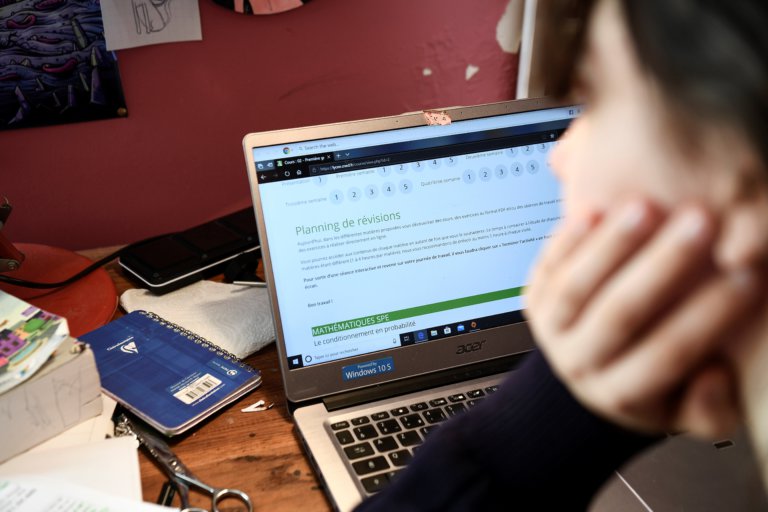
It can be hard to not feel stressed in 2020 as a student. With the sudden shift of universities online, students are now listening to lectures, discussing with classmates and doing pretty much everything else virtually. In this new normal, this includes taking online tests. With wholly-new formats and other unknown variables, this pandemic-edition of exams can be trying to students mostly used to conventional tests in lecture halls.
In Australia, ABC News reported that the use of online invigilator services like ProctorU is leading to more stress.
ProctorU, a US-based online Invigilator service, is now being used across universities in Australia such as University of Queensland (UQ), Griffith University, the University of Sydney and the University of Technology Sydney.
ProctorU requires access to a computer’s webcam, screen and files so that the assigned proctor can supervise the student, while also mentoring the student’s keystrokes and taking control of their computer remotely.
UQ Student Union president Ethan Van Roo Douglas told ABC, “We’ve heard stories for example of proctors taking control of computers … some have not been permitted to begin their exam until hours after their designated start time.”
“[Proctors] have been rude and belligerent and have actually interfered with the conduct of their exam and made threats to the effect of if they don’t follow their instructions, they will fail the exam.”
Other reports include a proctor disabling auto-save on a student’s computer, and taking control of her computer in the middle of the exam which caused her to lose a big chunk of her progress.
Student Elyssa Caunt said, “Exams are already stressful enough that it’s really difficult to then be put under further stress by something that’s completely out of your control.”
These students also face stress from constantly being watched and monitored while taking online tests, as one proctor reportedly demanded multiple video sweeps of the room a student was doing her exam in, as well as the bathroom when she requested a break. Add to that the worries over graduating on time and/or during a pandemic, and it’s a pretty trying time for students everywhere.
The reality is online exams are here to stay until a vaccine is found. Until then, students should keep these tips in mind to reduce stress when taking online exams.
Connect with others
These are challenging times; No one is immune to the disruptions caused by the pandemic.
Don’t be afraid to talk to a parent, friend, counsellor or classmate if you too feel affected.
If you’re facing specific challenges with the format of online tests or dealing with proctors, speak to your instructors about your concerns and see how they can help to alleviate the stress you are facing.
Most professors hold virtual office hours. Contact them and seek their help when you hit a learning roadblock.
To keep in touch with your classmates, set up virtual study groups or WhatsApp groups so you can discuss concerns collectively.
Talking through your stress can help relieve the pressure, and you will also find you’re not alone in feeling this way, which helps greatly.

It can be stressful taking online tests during a pandemic. Source: Issouf Sanogo/AFP
Take breaks
Stressed from studying and preparing for online exams? Don’t forget to take a much-deserved break — go on, you’ve earned it.
Studying at home can pose challenges such as not having a proper schedule or place to study in. Do it wrongly or too intensely, and you can burnout.
Kevin Fagan, who is studying for an MSc in International Business, told The Journal, “In normal times I might be going between the office, the library and home, with commutes breaking my day into defined periods. Without this separation, the days become very long, so it’s important to have a timetable that allows for rest and relaxation.”
Watching a funny movie, going for a walk, cooking, or calling up a friend on the phone for a chat — these make for great mental breaks, you should definitely try one. They relieve stress and recharge you to study better, what’s not to love?
Request for additional time if you need it
Timed exams can cause unnecessary stress for some students, especially if they are struggling with bandwidth and connectivity issues.
Joshua Kim, the Director of Online Programs and Strategy at the Dartmouth Center for the Advancement of Learning (DCAL), wrote on Inside Higher Ed, “I do not doubt that most schools are totally on top of the steps necessary to ensure that students with identified learning support requirements are receiving extra time on timed exams.”
“If a student was approved for additional time during residential classes, that approval should carry forward to remote learning.”
Liked this? Then you’ll love…
8 online TOEFL practice tests to prepare for your language exam in the US and beyond
Pathway programme providers offer visa refunds, flexible start dates







